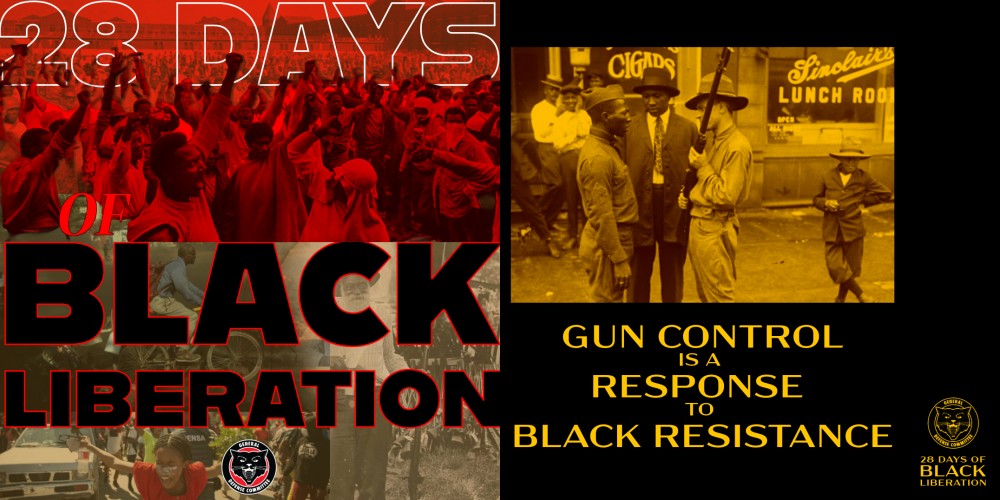28 Days of Black Liberation 2025 series
During the Red Summer, white gun shop owners barred Black people from buying guns in some areas to try to stop them from being able to protect themselves & to prevent the Black insurrection they feared.
Gun control in the US has been racially motivated from its inception to now.
New gun control laws & policies often follow events that threaten the racist, capitalist status quo, like after the Nat Turner rebellion in 1831, when enslaved and free Black people took part in an uprising that freed slaves and killed their white owners. This was the planting class’s worst fear, and even though none of the revolters used guns, slave states adopted measures to restrict all Black people from owning guns.
After the Civil War, Black Codes in the South made it a crime for a Black person to have a gun in order to maintain white supremacy after emancipation. Southern states, and later Northern states, tried different measures to stop Black gun ownership. In some places, selective weapons permits were introduced so that they could be denied based on race or immigration status. In others, sales of cheap guns were banned – after the local KKK chapter had stocked up on them. This was considered a precursor to the “Saturday Night Special” laws currently used in an attempt to remove easily accessible firearms from the market.
In 1919, white people had almost no limitations to gun ownership, while Black people were largely prohibited from owning guns. During the Red Summer, some got guns into the hands of Black people in need by buying guns where it was allowed and shipping them through the mail.
This pattern continues.
In 1967 the Black Panther Party (BPP), whose members carried weapons to guard against police brutality, open carried in California’s capital building to protest a new gun control law. The very next year, Nixon signed the 1968 Gun Control Act, which banned cheaply-made handguns, AKA “Saturday Night Specials”, as well as barring felons, mentally ill people, and others from owning guns. The BPP often armed themselves with “Saturday Night Specials” due to their accessibility.
The 1968 Gun Control Act is still active, and selective weapons permitting remains an issue.
During the month of February GDC honors the legacy of the Black Liberation Struggle. Our program – 28 Days of Black Liberation – seeks to highlight the history, take inspiration, and draw lessons from the Black freedom struggle. The GDC sees the Black Proletariat as the vanguard of the class struggle in the United States – from early rebellions led by enslaved African people to the George Floyd Rebellion. The 28 Days of Black Liberation is a chance to reflect on this history of resistance and continue the revolutionary struggle against white supremacy, capitalism, and imperialism. Each week we will focus on one event/movement that we think is critical. We will also have events each week to allow for collective discussion and deepening our understanding and revolutionary commitment.

